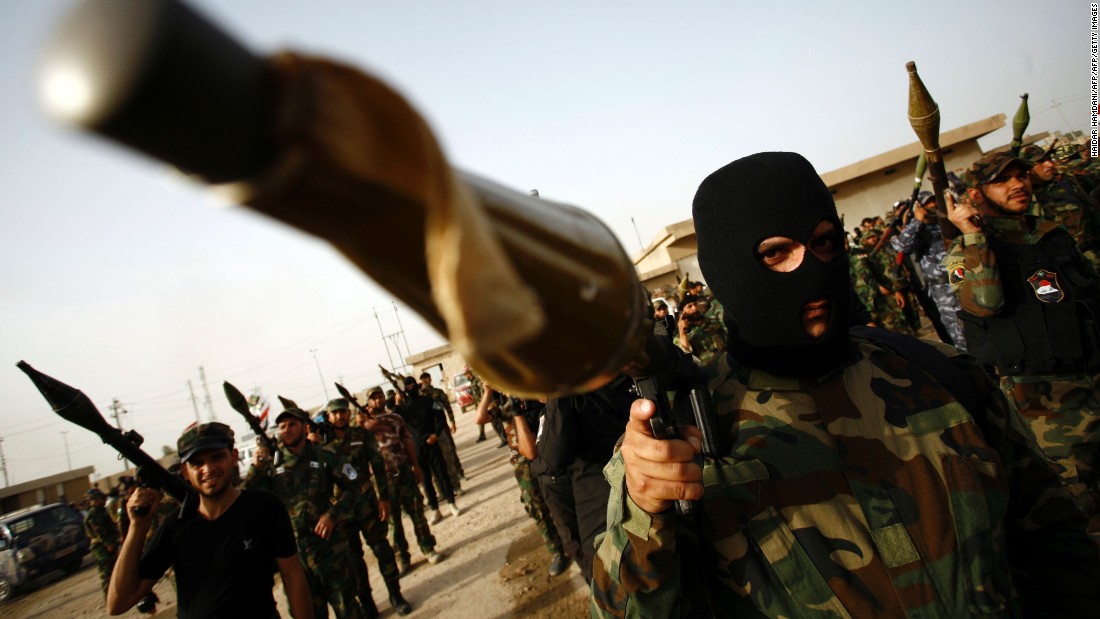
Iraqi forces are “approaching a moment of great victory,” Prime Minister Haider al-Abadi declared Sunday night on television, flanked by senior military and police commanders. The long-anticipated offensive to drive ISIS out of the city of Falluja has begun.
But how long it will take to reach that moment is difficult to say. ISIS has proven to be a formidable foe, and every victory over the group has come at a high cost. To paraphrase that classic line attributed by war correspondent Peter Arnett to an American officer in the Vietnam War: To save cities from ISIS, Iraqi forces have had to destroy them.
The Iraqi air force has dropped thousands of leaflets over Falluja urging civilians to leave, but ISIS is reportedly preventing them from doing so. The leaflets advise residents to raise white flags over their homes if they can’t flee. That there will be innocent civilian victims, and many of them, is not a possibility: It’s a certainty.
Falluja has been under siege by Iraqi forces for months. The humanitarian situation is dire, with severe shortages of food and medicine. The Iraqi military, bolstered by recently delivered U.S.-made F-16 fighter aircraft, has been bombarding targets in and around the city for weeks.
Falluja is a traditionally Sunni-dominated city about 65 kilometers (40 miles) west of Baghdad, once with a population of 300,000, now down to less than a third of that. Falluja was the scene of some of the bloodiest fighting between U.S. forces and insurgents during the American occupation of Iraq, and it became the first Iraqi city ISIS captured in January 2014.
Iran-trained Shia fighters
The forces participating in the offensive are a mix of Iraqi army, police, anti-terrorism units, Sunni tribal militias and what are known as the Popular Mobilization Units, or PMU — Shia-dominated militias well-armed and trained by Iran. U.S. warplanes will provide some air cover but will have to do so selectively since the United States is eager to avoid the impression it’s providing air support for pro-Iranian forces.
The U.S.-led anti-ISIS coalition said it has carried out 21 air and drone strikes on ISIS targets in Falluja since Tuesday.
This hodgepodge of fighting units have been in action before — during the offensives to retake Tikrit and Baiji last year. The PMU seemed better organized, equipped and led. I attended a briefing chaired by senior PMU commander Abu Mahdi al-Muhandis outside Baiji in June. The senior Iraqi army generals at the briefing were highly deferential, clearly the junior partners in the operation.
Sunni fighters, plus select government forces, will in theory take the lead when it comes to fighting inside the city to avoid the impression Shia-dominated forces are conquering and occupying Falluja, a proudly Arab Sunni city.
I met some of those Sunni fighters last summer when they graduated from basic training. They complained of not getting paid, of having to buy their own uniforms, of being begrudgingly provided with poor weapons and inadequate ammunition. Morale was clearly low, distrust of the Shia-dominated government in Baghdad high.
Unrest in the capital
The Prime Minister vowed Iraq will “tear down the black banners of the strangers who kidnapped” the city of Falluja. The buildup to the operation has been covered extensively in the Iraqi media, with operational secrecy sacrificed to the need to bolster a beleaguered government’s credentials.
While Iraqi forces have been successful at retaking territory from ISIS, including the cities of Tikrit, Baiji, Ramadi and, last week, the town of Rutba on the highway to Jordan, the throne in Baghdad is shaky.
The Falluja offensive takes place against a background of mounting political turmoil in Baghdad, where twice in the last three weeks protesters loyal to Shiite cleric Muqtada al-Sadr have marched on the so-called Green Zone, the heart of the government.
They occupied the Iraqi parliament and the Prime Minister’s office, demanding an end to government corruption, repeating a chant oft-heard during the Arab Spring: “The people want to topple the regime.” At least two protesters were killed over the weekend in the latest Green Zone occupation.
Bigger challenge ahead
Driving ISIS from Falluja is important, but the biggest test for the Iraqi government will be to liberate Mosul, Iraq’s second-largest city.
ISIS seized control of Mosul in June 2014 when, according to some accounts, as few as 400 militant fighters routed a force of more than 10,000 soldiers and police, capturing a massive arsenal of U.S.-supplied equipment, including more than 2,000 Humvees. It was a humiliation from which the Iraqi army has never fully recovered.
The Falluja operation has just begun, but the “mission accomplished” moment may be weeks, or even months away.
ISIS has had 2½ years to dig in, make plans, rig improvised explosive devices and other deadly surprises. It took several failed offensives to crush ISIS in the neighboring Ramadi, and much of that city remains uninhabitable.
In Iraq’s war against ISIS, nothing is simple. There are no easy victories.
As reported by CNN
